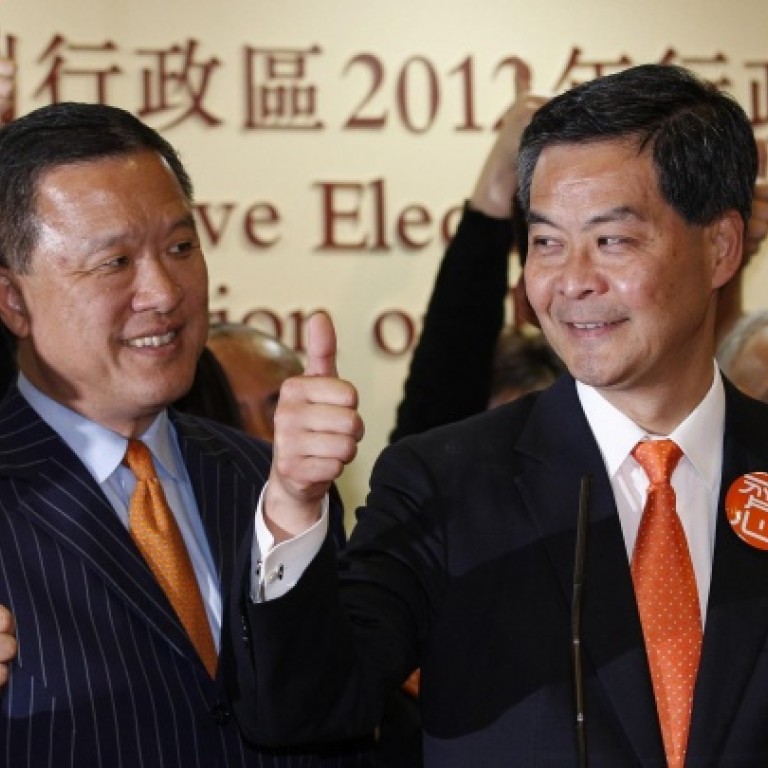
Conspiracy theories abound, but they don't provide answers
The city's seemingly chaotic political scene may herald the emergence of a new governing order
In politics, conspiracy theories are rife. They have sprung powerfully into life since Barry Cheung Chun-yuen, an Executive Council member and top aide to Chief Executive Leung Chun-ying, was forced to quit all his public positions during the inquiry into the collapse of the Hong Kong Mercantile Exchange, which he founded.
As the chief executive's most trusted confidant, Cheung's resignation has been the heaviest blow to Leung so far. Since Leung took office last July, he has had a rough ride, despite full backing from Beijing.
One thing that has puzzled many is why Beijing would rather see Leung's closest ally run into serious money problems that have led to a police investigation than help him out financially and avoid a political storm. The affair has triggered gossip about whether Beijing's support for Leung may be limited.
There has even been speculation about Cheung's background - namely, that he hails from an anti-Communist Kuomintang family. Others have noted his close connections with the British. Cheung began his political career at government think tank the Central Policy Unit, invited on board by Leo Goodstadt, head of the unit in the 1990s, when Hong Kong was still under British rule.
Some have concluded that Beijing may not trust Cheung entirely, even though he played a key role in Leung's election campaign.
Another conspiracy theory revolves around why "black materials" related to Leung's cabinet members have come to light and turned into scandals one after another. First it was former Development Bureau chief Mak Chai-kwong, who stepped down just 12 days into his job after the Independent Commission Against Corruption arrested him for allegedly fiddling his housing allowance back in the 1980s.
Then his successor, Paul Chan Mo-po, was thrust into a crisis when it was revealed that his wife's company was involved in the shady subdivided flat rental business.
And now it is Barry Cheung's turn.
Those who have smelled conspiracy say these incidents had one common goal - to deter outside talent from joining the Leung administration. Some have even suggested that "external forces" have been at work behind the scenes - that the British still keep confidential files on some former senior Hong Kong civil servants and political figures, and that certain leaks of these to the press could destroy political careers.
While conspiracy theories provide plenty of scope for imagination, nothing has been proved, and such ideas ignore practical and political realities in Hong Kong.
Those who have wondered why Beijing didn't offer a "white knight" to Barry Cheung may have underestimated the difficulties of getting loan finance. Lenders in Hong Kong and on the mainland must observe rules and regulations. Sufficient financial guarantees plus a viable debt restructuring plan, rather than a simple political affiliation, are required before any loans are disbursed.
By the same token, those who believed that outside forces were briefing against certain pro-government political figures may have overestimated their power by overlooking the complex political ecology of Hong Kong.
Recent years have seen more multi-dimensional development across the political spectrum. There is no longer a clear-cut pro-establishment versus pan-democratic duality in politics. Infighting takes place everywhere, especially among the so-called pro-establishment forces following Leung's election, which saw a serious split between his supporters and opponents. That wound has not healed, despite Beijing's calls for unity.
As the Chinese saying goes, there's "no construction without destruction".
The apparent chaos of Hong Kong's political rough and tumble may herald an emergent new political order and a more workable system. But conspiracy theories will not help the city attain it.

